Decorating With Neon: It’s a Gas
http://decor-ideas.org 10/07/2014 22:39 Decor Ideas
In the 1940s, long before LED banners and electronic message displays, American cities were lit up in a rainbow of neon signs every evening. The signs were (and still are) made by bending glass tubes into the desired shapes and filling them with a mixture of gases. When electrified, they glow with a warm and intense illumination that’s impossible to ignore. After the 1960s new electronic technologies started to replace the neon signs on commercial buildings. But these days it seems the glow is warming up again in private homes.
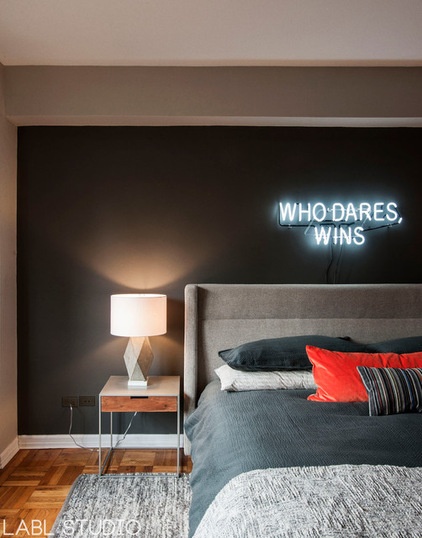
In this New York City apartment, the designers at LABLstudio wanted their client’s bedroom to feel masculine and cozy. “We kept the space clean and relaxing by keeping a neutral palette and adding just a few accents of bold color,” they write. The confident phrase “Who dares, wins” is both the motto of the British Special Air Service and a catchphrase on the U.K. sitcom Only Fools and Horses. No matter where the inspiration sprang from, we get the feeling the designer and the client are risk takers.
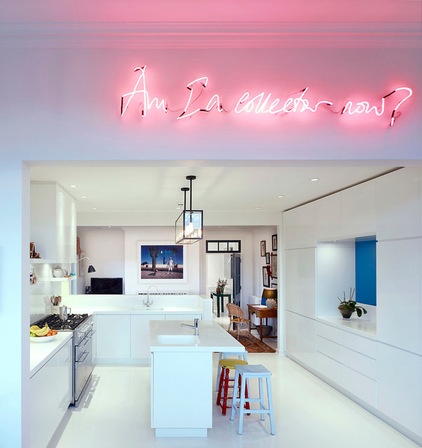
The pink neon question “Am I a collector now?” glows above this kitchen in an art-filled London apartment by Stiff and Trevillion. Given the number of framed works on the walls, it’s perhaps a rhetorical question. One thing is crystal clear: Neon looks great on a simple background that provides high contrast.
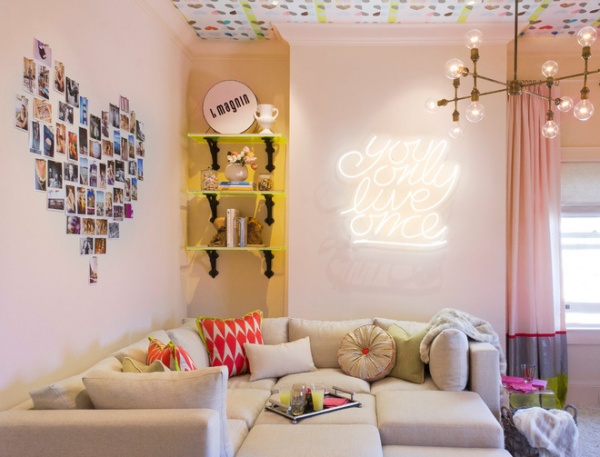
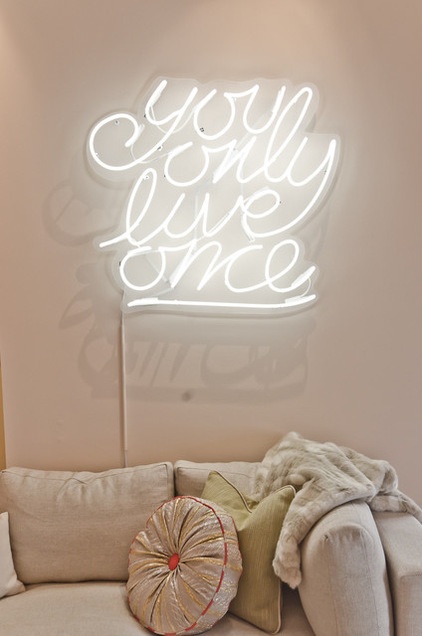
Designer Emily Mughannam created this teen hangout using a pretty but not-so-gentle reminder to make the most of life.
Sign: custom, Peterson Neon
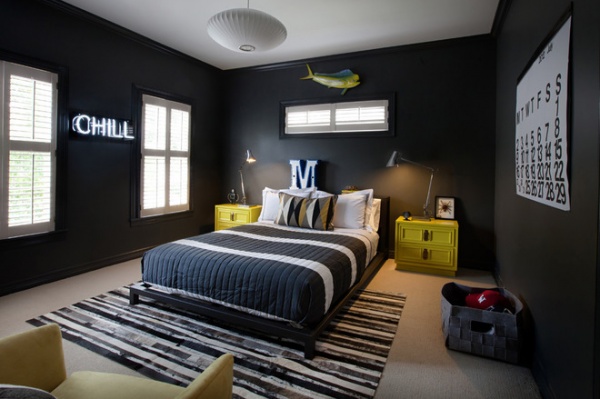
A custom neon sign is used in this teen room by designer Sally Wheat. The blue-white glow on the nearly black wall does indeed have a cool effect.
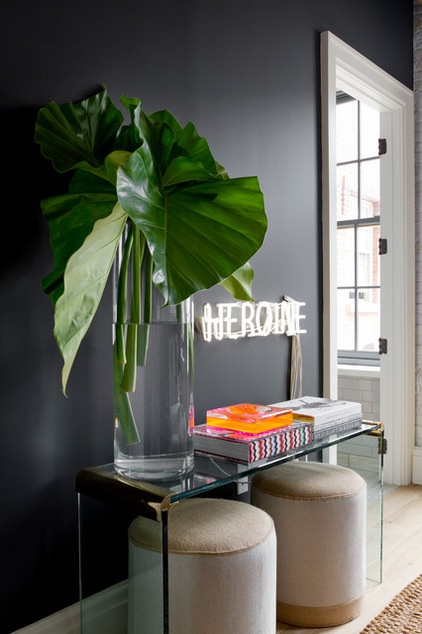
A noir-colored wall is also the backdrop for this heroic sign in a project by Tamara Magel Studio.
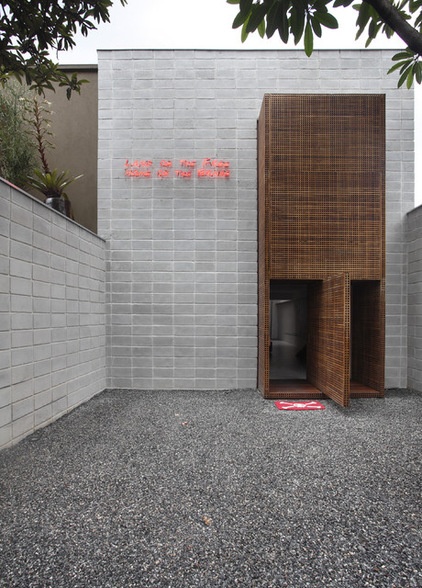
The entry of the São Paulo, Brazil, home of architect Guilherme Torres glows with a statement by artist Pinky Wainer: “land of the free and the home of the brave.” It’s a clue to what lies behind the door of the minimalist but art-filled home.
See the rest of this home
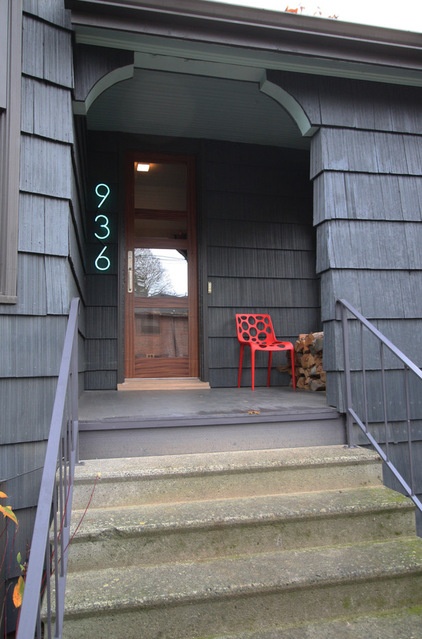
This Portland, Oregon, home by Bright Designlab appears to be, at first glance, a sweet and simple bungalow. But the neon house numbers belie a wildly creative interior and a modern addition.
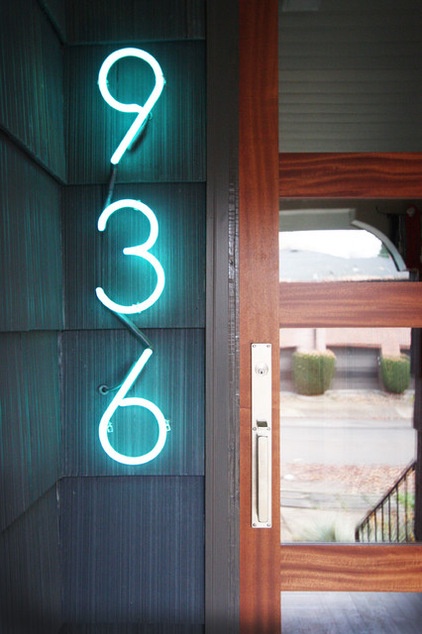
It’s the home of Daniel Thomas, co-owner of Hammer & Hand, and he had the creativity built in.
See more of this house
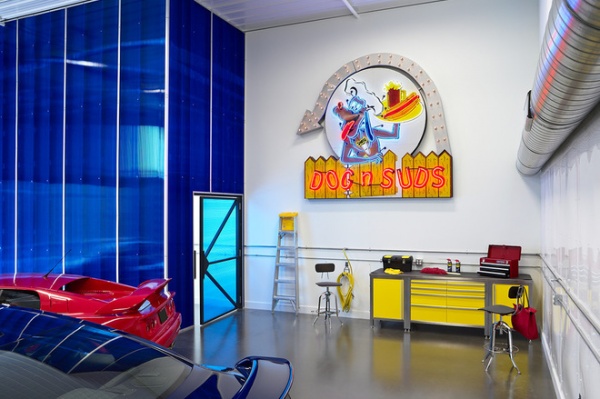
At some point in the history of neon signs, merchants realized that when the sign is off, the message isn’t nearly as eye catching. So someone came up with the idea of adding neon tubes over colorful signs — making them suitable for day or night. The concept is illustrated in the AutoMotorPlex (a garage condo for car collectors) by Murphy & Co. Design. The sign is a collector’s item; 10 were made, and four remain.
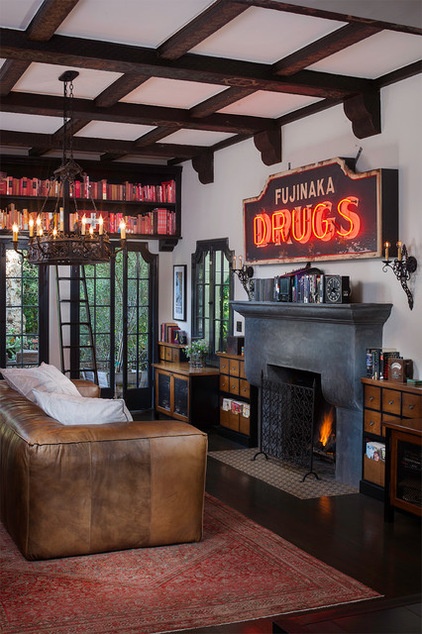
Some reports say that at the height of neon signs’ commercial popularity in the U.S., there were more than 2,000 workshops dedicated to the craft. Imagine the number of signs created — and many of them are on the collectible market today.
This sign once identified a drugstore; today it shines in an interior by Deirdre Doherty.
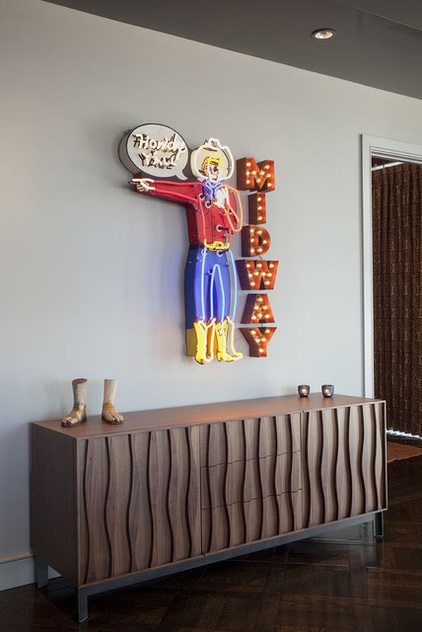
Perhaps the desire for the vintage pieces exceeds the supply. Many companies and neon artisans are dedicated to creating new signs that look old — such as this piece by Roadhouse Relics, in a project by Cravotta Interiors.
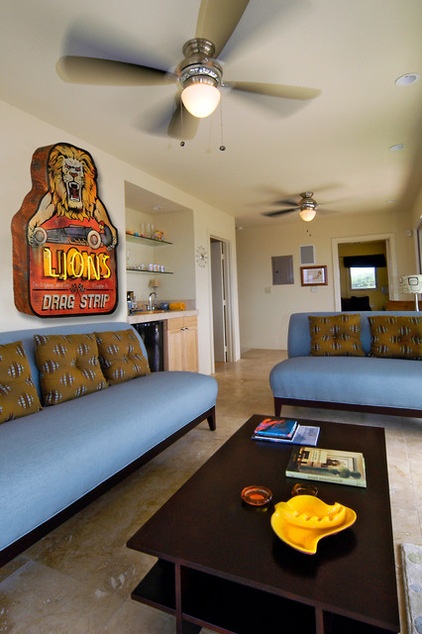
Another company, Route 66 Relics, makes signs that only look vintage. You would think that this patinated piece once stood over a 1950s drag racing track. But in fact, it’s new.
New or old, collectible or copy — our thirst for neon signs still burns brightly.
Tell us: What would your neon sign say?
Related Articles Recommended












